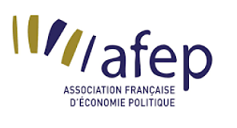Main menu
HELP
|
Call for proposals What is a sustainable economic and social system? Four decades marked by the flexibilization of markets, in particular the labor market, by the erosion of the social state and by waves of privatization and deregulation have profoundly changed the structures of our economies and societies. New vulnerabilities and tensions have emerged, as is now recognized by the international organizations that had promoted the liberal transformations of capitalism. The problem of economic and social inequalities, that of financial instability, as well as that of the limits inherent in the depletion of natural resources and the modification of the atmospheric composition, pose the question of the evolution of capitalism in a new and crucial way. On a historical level, the transformations of this system contribute to its "sustainability", but in ways that are not necessarily sustainable. The recurrence of crises since the end of the 1990s seems to remind us that "crises are never more than momentary and violent solutions to existing contradictions, violent eruptions that re-establish the disturbed equilibrium for a moment" (Marx). In the most recent period, the dynamism of the digital sector has seemed to contribute to the resilience of the economic system, but its development has created formidable problems: the uberization of work, gigantic monopoly rents, tax evasion, overconsumption of energy, etc. The 11th AFEP Congress proposes to examine the conditions and limits of the sustainability of contemporary capitalism. Does the current functioning of this economic system reflect deep internal contradictions, or does it have the capacity to adapt in order to resolve, in an endogenous way, the social, economic and ecological problems that it has created through its own dynamics? The ecological, economic and social "transitions", which are closely interconnected, would involve major transformations of economic activity, working conditions and health and social protection systems, as well as modes of regulation and modes of "governance. How can we envisage these transformations? What are the productive changes already at work? What is the state of knowledge about the biophysical dimension of socio-economic systems? What would be the conditions for a sustainable economic and social system? Such questions require us to address the economic, social and institutional changes that are underway. They require macroeconomic and/or systemic analyses of the overall logic according to which capitalism is coordinated and reproduced as an economic and social system. Capitalism has shaped economies and societies, but also geographical spaces, territories and mentalities. Its operating conditions can be understood from the perspective of the different domains it has disrupted: production and employment and distribution, as well as health and the exploitation of natural resources, which has shaped territories, landscapes and living, working and mobility spaces. New practices, activities or regulations seem to challenge certain characteristics of contemporary capitalism: the development of commons, which has led to a reassessment of the notions ownership and citizenship, announcements of actions taken "whatever the cost" during the pandemic, the return - even if fragmentary - of the idea of economic planning that calls into question the efficiency of market coordination, the changes in agricultural practices, exchanges and coordination at the local level and the development of the social and solidarity economy sector potentially leading to social innovations and of alternative modes of production and consumption that attach greater value to and reduce the use of resources. These practices are themselves fraught with contradictions, such as the financialization of social (social impact contracts) or environmental (payment by results funds) mechanisms; more generally, they raise questions about the nature and effects of market mechanisms as means of responding to ecological issues. This 11th AFEP Congress will be an opportunity to analyze contemporary debates on "sustainable development" and the more recent variations on "transitions", insofar as these debates question the interactions between human activities and the rest of nature by renewing a line of thought that originated in philosophy and had already been examined by political economy during the industrial revolutions. In the spirit of openness that characterizes the pluralist approach promoted by AFEP, the congress remains open to any theme or approach. Proposals that do not explicitly address the theme of the conference are therefore also welcome and will be considered by the programme committee.
Deadline for proposals: (one page abstract + bibliographic references): January 19, 2022 (via https://afep2022.sciencesconf.org). Notifications of accepted proposals will be sent to the authors by: March 31, 2022. Opening of registration: April 15, 2022 Scientific committee: Nathalie Berta (REGARDS, Université de Reims, France), Bruno Boidin (CLERSE, Université de Lille, France), Lynne Chester (University of Sydney, Australia), Pascal Depoorter (CURAPP, Université de Picardie, France), Catherine Figuière (CREG, Université de Grenoble, France), Ben Fine (Soas, University of London, United Kingdom), Edward Fullbrook (University of the West of England, United Kingdom), Geoffrey Hodgson (LIM, Loughborough University London, United Kingdom), Florence Jany-Catrice (CLERSE, Université de Lille, France), Jakob Kapeller (Institute for Socio-Economics, University Duisburg-Essen, Germany), Tony Lawson (University of Cambridge, United Kingdom), Nathalie Lazaric (GREDEG, CNRS, France), Philippe Légé (CRIISEA, Université de Picardie Jules Verne, France), Stéphane Longuet (CRIISEA, Université de Picardie Jules Verne, France), Géraldine Rieucau (CRIISEA, Université de Picardie Jules Verne, France), Olivier Rosell (CRIISEA, Université de Picardie Jules Verne, France), Franck-Dominique Vivien (REGARDS, Université de Reims, France).
Organizing committee: Emmanuelle Bénicourt (UPJV-CRIISEA), Emmanuelle Besançon (Institut Godin-CRIISEA), Nicolas Chochoy (Institut Godin-CRIISEA), Samba Diop (UPJV-CRIISEA), Thomas Irace (UPJV-CRIISEA), Philippe Légé (UPJV-CRIISEA), Stéphane Longuet (UPJV-CRIISEA), Léo Malherbe (UPJV-CRIISEA), Géraldine Rieucau (UPJV-CRIISEA), Slim Thabet (CRIISEA, Région Hauts-de-France). |


